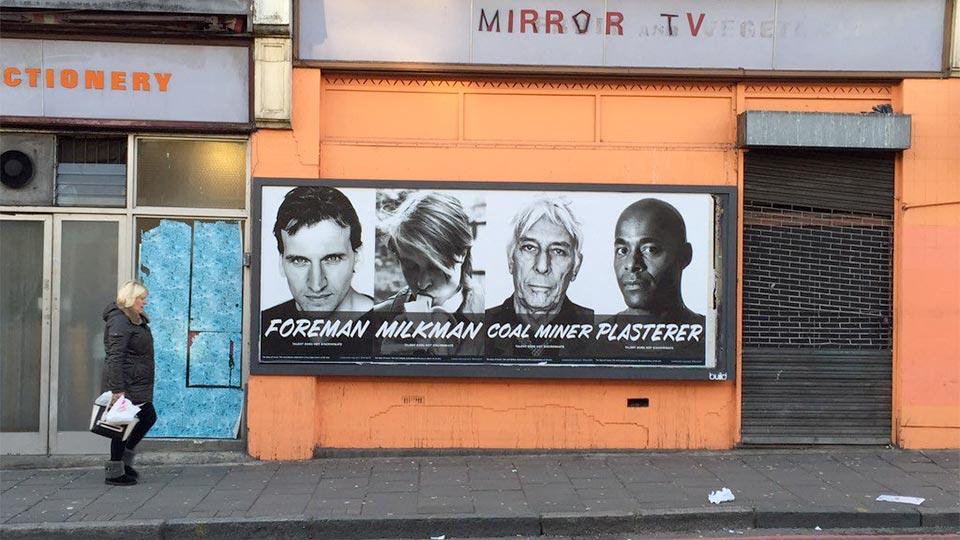Goldsmiths and Sheffield Methods Institute research reveals inequality in arts sector workforce
Primary page content
Arts sector employment is a “closed shop” dominated by the middle classes, research by experts from Goldsmiths, University of London and University of Sheffield’s Methods Institute reveals today.

Arts agency Create London's new 'talent does not discriminate' campaign: high profile figures from the arts and media and their parents' occupations.
The new study by experts from the Institute for Creative and Cultural Entrepreneurship (ICCE) also shows that gender and ethnicity can influence a career in the arts.
Men working in the cultural industries earn nearly a third more than women while women are more likely to have undertaken an unpaid internship than men, the survey on behalf of arts organisation Create showed.
It also revealed that nine out of 10 people employed in this sector have worked for free – while four out of 10 do not have a contract.
The survey provides the most wide-ranging picture to date of working life across the core sectors of the cultural and creative industries in the UK. It also comes at a crucial time for the arts sector, with further cuts to funding expected in the government’s spending review on 25 November 2015.
Research leader Dr Dave O’Brien, senior lecturer in cultural policy at ICCE, said:
“The findings from the Panic! Web survey confirm what academic research has long demonstrated about inequality in artistic, cultural and creative jobs.”
In total 2,539 people working in all core areas of the cultural industries contributed to the survey that ran on theguardian.com in September and October 2015.
The best-represented categories were workers from museums, galleries and libraries, performance and music and visual arts.
The survey found significant discrepancies in the way people working in the arts view the sector – and that it is a precarious industry where support structures from families are essential to allowing individuals to succeed.
The most revealing findings of the survey are:
- Those that earn over £50,000 p/a you are most likely to believe that they got there through hard work, talent and ambition. Those earning under £5,000 p/a are most likely to believe that it’s not about what you know but who you know.
- Attitudes of white respondents played down the significance of ethnicity in getting ahead the arts.
- Women are more likely than men to have worked in the arts sector for free and once paid are generally paid less than their male counterparts.
The survey also found that an overwhelming majority of respondents working in the arts (76%) had at least one parent working in a managerial or professional (i.e. ‘middle class’) job whilst they were growing up and that over half had at least one parent with a degree whilst growing up.
When this is paired with the fact that nearly 90% of respondents had worked for free at some point in their career, the Panic! research paints a bleak picture that if young people don’t have parents that are able to support them in their pursuit of a creative career then it is an extremely hard to break into the industry.

The research was delivered by Goldsmiths, University of Sheffield and LSE as part of Create’s major new project Panic! What Happened to Social Mobility in the Arts?
The survey kicks off the Panic! season which explores the current state of Britain’s cultural industries.
A 10-day festival of music, film and debate dedicated to the preservation of the arts, it includes a debate at Goldsmiths on 2 December on whether the capital can maintain its position as a leading creative and cultural centre amid spiraling costs for aspiring artists.